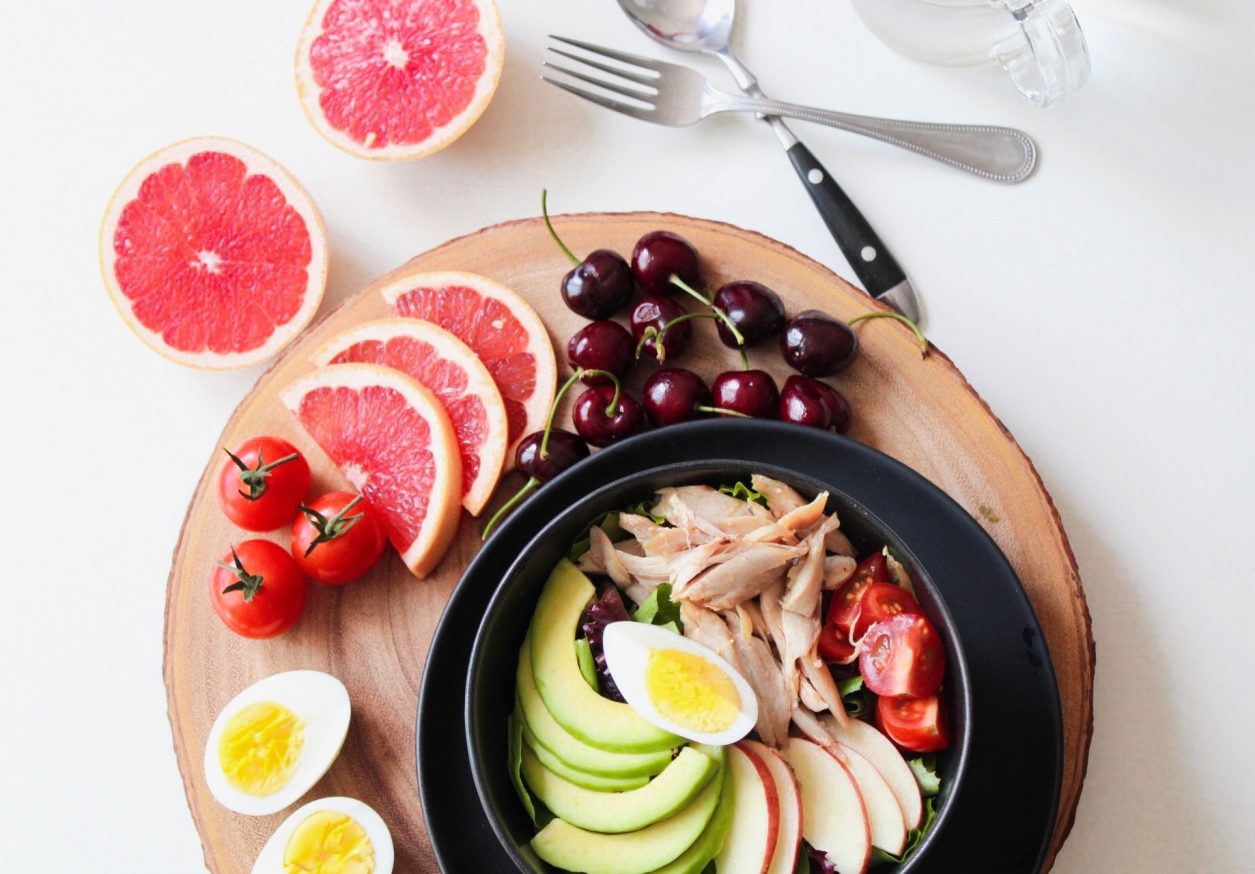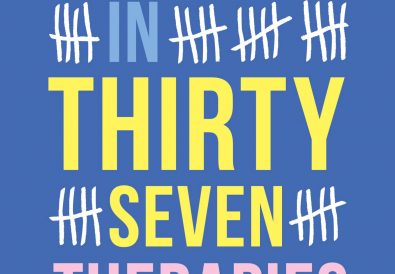In 1998 I answered a call from the principal of my daughter’s grammar school. He claimed she was acting aggressively in class. When I asked him to elaborate, he said, “Your daughter is biting children!” Horrified and without explanation, I promised to take her to therapy and swore it would never happen again.
After gleaning what I could from my sobbing child—“I didn’t mean it Mom, I swear! I couldn’t help it!”—I researched some therapists and booked an appointment with her pediatrician to have her blood drawn. I had just started seeing a Naturopath who practiced bio-chemical nutrition, and he based his treatment plans on what he found in his patient’s blood chemistry. After being on his prescribed diet for only a short time, I began to feel a difference in my body and my moods. I thought, ‘If I’m changing myself from the inside out, I should be helping my daughter do the same.’
A few weeks later, we entered “Doc’s” sparse quarters with a copy of Heather’s results and absolutely no expectation of what he would find. Turns out, there was plenty to remark about. “Well, well,” he said with a wild look in his eyes, “I see she’s a little aspartic girl!” Thinking I heard him wrong, I asked, “What kind of girl?” He hissed back “Aspartic Girl!” His animated response prompted a cartoon visual to pop into my head of my curly-haired child garbed in red cape and tights with a big A on her chest. Amused, but confused, I asked him to elaborate. He went on to explain aspartic acid as being an amino acid neurotransmitter which helped in the release of testosterone. He found her aspartic acid level to be too high, which prompted his question, “Is she a little aggressive?” I was dumbfounded! How did he know? “Yes,” I exclaimed, “we’re here because she’s biting people!” He thought that was understandable, as too much aspartic acid in little girls wasn’t “a good thing!” Then he asked, “Is she eating a lot of chicken?” Again, I was stunned. “Yes, she eats chicken every day! Chicken nuggets, breast fillets, legs… what should I do?” “Well, we know the problem,” he said with certainty, “cut the chicken down, replace some of it with turkey, and let me know in a week how she does.”
So, we did what Doc ordered, and Heather never acted out in school again. The best part of his diagnosis: having chicken to partially blame for the biting allowed for a rise in her self-esteem. In those times when she felt out of control, she was being called the class bully. A good, loving kid at heart, she was sorrowful about hurting others and mortified by the label she was earning. I understood her reaction. For years I had been trying to manipulate my own moods, constantly putting anger, fear, and anxiety in check. Even for an adult that was a tremendous undertaking, but for a child without the mental wherewithal to figure it all out, it had to be near impossible. By eliminating the aspartic acid overload—the physical precursor of her aggression— Heather was later able to address some trapped emotions with her therapist. Without her body chemistry changing first, though, I believe talk-therapy would have been counter-intuitive. Imagine if after months of counseling she still couldn’t control herself… what would her physical, mental, and emotional state dictate then?
With suicide soon to be the second leading cause of death in this country, substance abuse an almost common occurrence, and anxiety, anger, and hostility at an all-time high, it is about time we take consumption chemistry seriously. After all, without the proper chemical intake, no brain can function normally, no ‘body’ can overcome its imbalances, and no mind can find strength and resolve; least of all, love, peace, and happiness. What we put into our mouths needs to be filled with goodness or how can we expect it to reap the same? It is unfortunate that we, as a society, understand how a tiny bit of chemicals taken daily in a tiny pill called Prozac can potentially keep a depressed person from jumping off a roof. What we don’t take into consideration is the possibility that the many chemical compounds in the mounds of food and drink consumed daily could be the leading precursory factor in a person’s need to jump in the first place!
After going on an elimination diet, Heather and I found our bodies were intolerant of wheat, dairy, and chemical additives, which were exacerbating and/or causing hormonal imbalances, body tics, fluid retention, GI distress, nasal rhinitis, menstrual irregularities, itchy rashes, acne, and even arthritic symptoms in our knees. We found sugar was altering our minds and our moods, and for me, compromised by an already dyslexic brain, eating or not eating sugar can mean the difference between working productively or floating around aimlessly like a paper airplane. On my own personal journey, managing my bio-chemistry led to managing my moods, physical symptoms, and the dyslexia and ADD challenges I dealt with my entire life. For Heather, who was later diagnosed with Celiac Disease, a new healthy body, outlook, and confidence was gained.
We both claim that eliminating what our bodies consider intolerable and filling them, instead, with what they deem optimal, allows us to thrive; clear-headed and free of almost every symptom and ailment. In the twenty years since that fateful day, Heather graduated top of her class as a Physician’s Assistant. With her combined knowledge of healthy lifestyle practices and western medicine, she helps patients gain a more complete understanding of how diet can play a role in physical sickness and mental health. And I went on to learn more through research and study, turning my knowledge gained into a coaching practice. Through a process I named Positive Manipulation®, I’ve helped many children and adults figure out what foods ail them. With their doctors’ blessings, some were able to stop taking prescription drugs simply by recognizing what not to eat. Initially, some were hesitant—even downright indignant about giving up their favorite chow, but my experience with my very first client who suffered from debilitating allergy symptoms, gave me the confidence to persevere. “Give wheat up for just one week,” I had said to him, “and if it doesn’t make you feel better, just go back to eating all the bagels you want!” Three weeks later, he was able to declare victory. “Donna, I haven’t eaten a single bagel, but guess what? I haven’t taken a single pill either!”
Hippocrates, known as the father of medicine, said thousands of years ago, “Before treating a sick person, change their diet. If that doesn’t work, treat the illness.” All doctors take his oath but most are not trained in his philosophies. To take some of the onus off of them, though, we need to realize it is impossible for any one person to diagnose every nuance of every patient’s bio-chemical makeup and reaction to food and its specific chemistry. We are on our own to figure it all out; but that’s okay! Mind and diet change are within our control. There are many reasons for mood swings, emotional and mental imbalances, and reoccurring physical symptoms, but diet change can and should be our first course of action. It’s free, after all, and not doing so can keep a body in a constant state of inflammation, struggling to overcome its ailments, sickness, and disease, irrespective of medical or psychiatric treatment.
Before realizing what wheat, dairy, and sugar were doing to my persona, I related to myself as an out-of-control, emotional and physical wreck. I’ve since learned that my body will listen to what I tell it, and my mind will follow my Soul if I let it! Now, I am no longer beholden to any mood I find myself in. Instead, I choose to always be beholden to the vessel my soul and I are now housed in.
 Donna Martini is a wellness coach, speaker and the author of The Ten Commandments of Divorce and My Mini Book of Mighty Mantras, which introduces MantraMouse; a cartoon peace activist who has started a national movement toward love and unity. Check out the MantraMouse message at mantramouse.com. donna@donnamartini.com.
Donna Martini is a wellness coach, speaker and the author of The Ten Commandments of Divorce and My Mini Book of Mighty Mantras, which introduces MantraMouse; a cartoon peace activist who has started a national movement toward love and unity. Check out the MantraMouse message at mantramouse.com. donna@donnamartini.com.




















